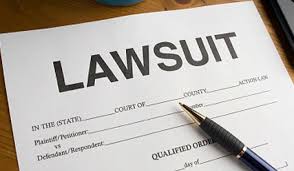
While Tesla founder Elon Musk was busy last week picking Austin, Texas and not Tulsa, Oklahoma as the site of his new truck plant, his lawyers were busy suing competitor Rivian for alleged theft of trade secrets.
Tesla contends about 70 of its employees have left Tesla for Rivian—22 in the last four months according to a report by Utility Dive. In the lawsuit, Tesla says some of those former employees absconded with confidential documents as they said “adios” and went to work for Rivian.
Rivian has emerged as perhaps Tesla’s most formidable rival among electric vehicle startups. The company announced a $2.5 billion round of fundraising earlier this month—on top of $2.85 billion raised last year. The company is working on a pickup truck, an SUV, and a delivery truck for corporate customers—all powered by batteries. Amazon, a Rivian investor, has already ordered 100,000 of Rivian’s delivery trucks.
With a ton of work to do and billions in the bank, Rivian needs to hire at a rapid pace. Unsurprisingly, Tesla workers have been a prime target of Rivian’s recruiters. Tesla says it respects Rivian’s right to recruit Tesla employees, but it argues that Rivian hasn’t been playing fair.
Another employee allegedly took “candidate lists, Tesla recruiting organizational charts, information about Tesla recruiters, [and] companies from which Tesla sources candidates.”
A third employee allegedly helped herself to “manufacturing project management, controls specifications for manufacturing equipment, specifications regarding manufacturing robots, and manufacturing equipment requirements.” A fourth took a list of Tesla employees with expertise in charging networks—some of whom were recruited by Rivian shortly afterward.
Tesla says that these four individuals may be just the tip of the iceberg. The company says it is still investigating the actions of other employees who recently departed Tesla for Rivian and will add some of them as defendants if they uncover evidence of misconduct.
In most cases, the employees allegedly downloaded the documents from Tesla’s network in the final days before leaving Tesla, then sent them to personal email addresses. When confronted by Tesla investigators, some admitted to taking confidential information, while others maintained their innocence, Tesla says.
The employees named in the lawsuit worked for Tesla in California, which has refused to enforce noncompete clauses in employment contracts. So there’s little Tesla—or any California company—can do to prevent employees from leaving for a competitor and taking along whatever confidential information is in their heads. But California courts do enforce non-disclosure agreements and trade secret laws. So if Tesla can prove these employees took confidential documents with them to Rivian, they could be in serious legal trouble.
Source: Utility Dive





